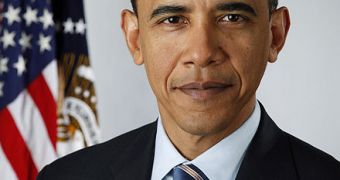For the first time ever, it may be that establishing an international ban on the testing of nuclear weapons is within reach, experts say. Plans for the Comprehensive Test Ban Treaty (CTBT) state that all explosions involving nuclear weapons, be they for civilian or military purposes, are to be banned. The negotiations, which will take place in New York later this week, are bound to be reinvigorated by the return of the United States to the table, and also by President Barack Obama's strong commitment to the cause. Additionally, with the completion of the world's first global nuclear-monitoring network, momentum is again in favor of signing the treaty, Nature News reports.
“This will be a different kind of event with the [United States] back at the table. I think we're as close to entry into force as we've ever been,” the Berlin-based representative of the Arms Control Association (ACA), Oliver Meier, says. The ACA is a non-profit group that analyzes international arm-control measures. The US will take part in the discussions for the first time in more than ten years. In spite of the fact that more than 149 countries have ratified the treaty, nations such as China, Israel, Iran, North Korea and the United States have yet to do so.
The CTBT would essentially curb nuclear development once and for all, in a move that former US president Bill Clinton described as “the longest sought, hardest fought prize in the history of arms control.” The document would essentially ensure that no new countries gain nuclear capabilities, and that the ones that already have nuclear arms should significantly limit their use. Until the US sign the treaty, there are little hopes that nations such as India, Pakistan and China will feel any pressure to do so themselves. Clinton signed the agreement in 1996, but the Senate did not ratify it. Senators Jon Kyl (Republican, Arizona) and Trent Lott (Republican, Mississippi) were identified as the main culprits behind persuading others not to vote for the agreement's ratification.
However, most of the arguments that were showcased at the time no longer stand today. Some said that the US might need to resort to testing in order to check their aging stockpile, and to see if it still worked. However, current advancements in science have produced ways of analyzing the bombs without actually detonating them. Additionally, the global detection network can find even underground tests, and report them within minutes of their beginning. “The process of monitoring has notably improved in the past ten years,” Columbia University in New York (CUNY) seismologist Paul G. Richards says.

 14 DAY TRIAL //
14 DAY TRIAL //